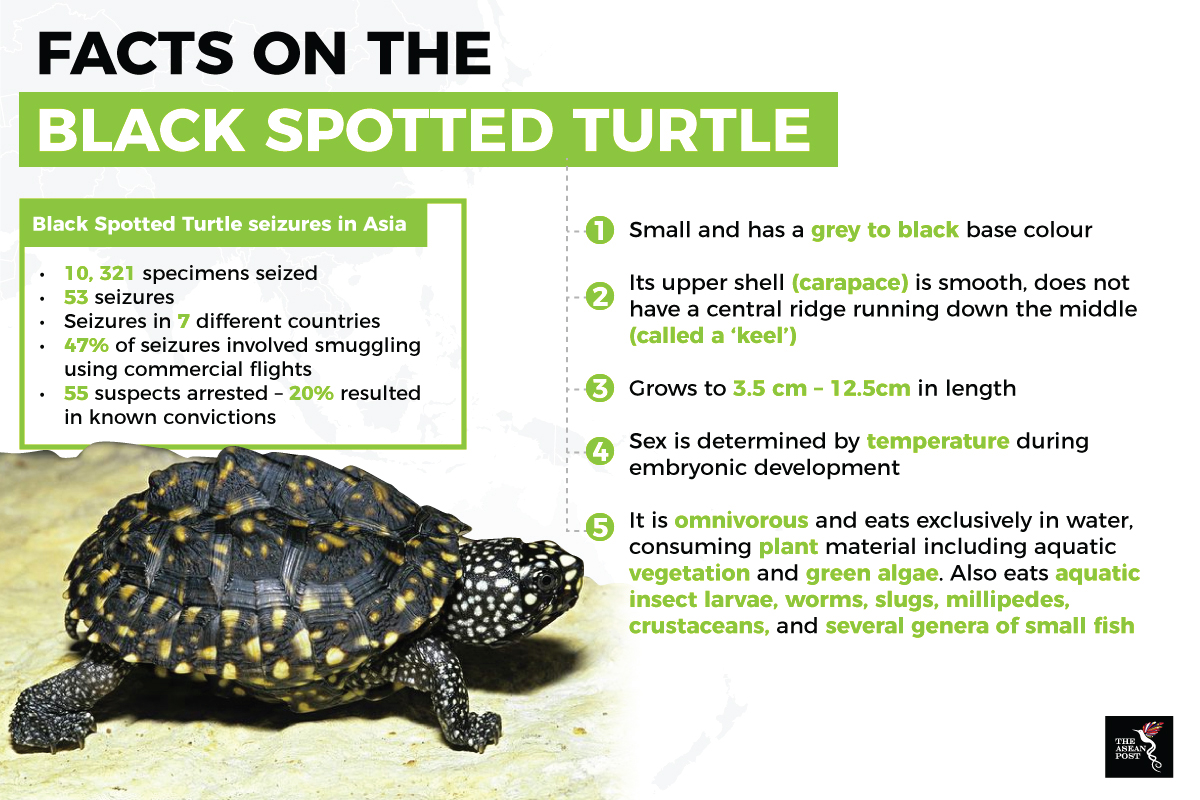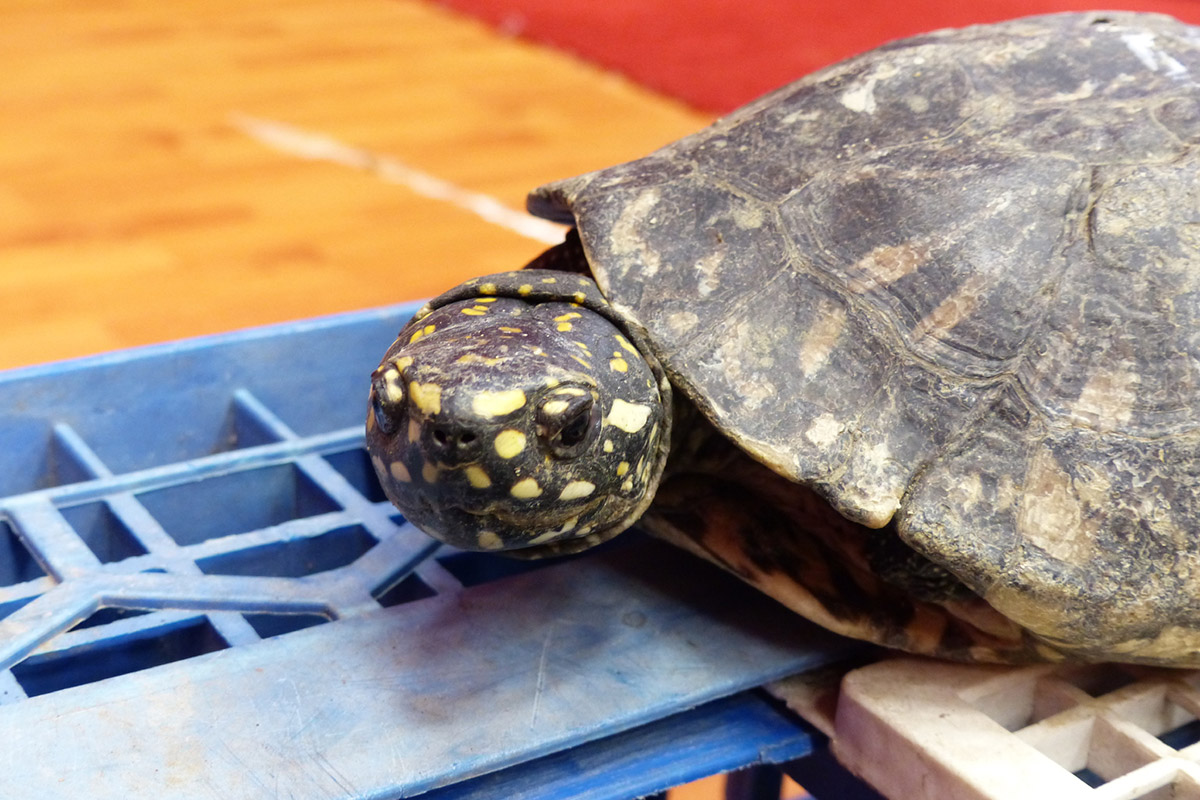In a world that is fast moving towards urbanisation, environmental considerations are often pushed aside. The rapid pace at which buildings and other structures are constructed is impressive but a blatant disregard of the ecosystem at the expense of development must be done away with. Flora and fauna often fall victim to massive modernisation projects with more animals on the endangered list now than ever before. One unfortunate creature that shares such a fate is the Black Spotted turtle (also known as the Indian Spotted turtle), a species of freshwater turtle endemic to South Asia.
The Black Spotted turtle, considered a delicacy in some parts of the world, is now a popular pet and favoured among wildlife smugglers. These turtles are even sold on the internet as part of a bustling online trade.
A study by TRAFFIC (a wildlife trade monitoring network) found that Black Spotted turtle illegal trade numbers had substantially increased between 2013 and 2014, with more than 1,960 turtles seized in a total of 22 recorded incidents. These numbers are alarming, considering the species’ current classification as ‘Vulnerable’ on the International Union for Conservation of Nature (IUCN) Red List. Based on the study, the seizure of Black Spotted turtles took place in 24 different locations in seven countries, all of which are in the Asia.
The same research shows that all recorded seizures involved shipments of live animals. Sadly, a number of these cases revealed large numbers of turtles dying while in transit. In a quarter of the incidents, Black Spotted turtles were found alongside other smuggled Asian freshwater turtle and tortoise species such as Indian Star tortoises, Indian Tent turtles, and Indian Roofed turtles.
These turtles are primarily sourced from India, Pakistan and Bangladesh and are transported to East Asia, often by means of transit hubs in Southeast Asia, particularly in Malaysia and Thailand.
Although protected by national laws throughout its natural range that prohibits all commercial international trade, increased demand in Asia continues to be a catalyst that fuels illegal harvesting and smuggling of these species. The Black Spotted turtle is also listed on the Convention of International Trade in Endangered Species of Wild Fauna and Flora (CITES), also known as the Washington Convention.
“For a slow mover, these turtles are going fast. The alarming escalation in seizures in such a short time span is a reminder that enforcement actions must be scaled up. Otherwise, it is unlikely wild populations can take the strain, while criminals continue to profit from crime,” said Kanitha Krishnasamy, Acting Regional Director for TRAFFIC in Southeast Asia.

Source: TRAFFIC
What can be done
Public awareness about the illegal trade in Black Spotted turtles should be heightened. Initiatives to reduce demand and increase knowledge about the illegality of its trade should be carried out among consumers in destination countries and among local communities in source countries. Added to this is the need to conduct continued research – and monitoring of – the Black Spotted turtle illegal trade to improve understanding of trade trends and dynamics. Findings from this research should be used in support of law enforcement interventions. Seizure analyses, market surveys, as well as illegal trade monitoring in identified destination countries ought to be implemented.
In terms of enforcement and regulation, intelligence-led investigations among relevant authorities is crucial, not only to the disruption of Black Spotted turtle trade players, but also to the collection of precise data for trade analysis. Enforcement efforts need to be enhanced and/or sustained at the identified trade hotspots (Karachi in Pakistan, Chennai in India, various locations along the India-Bangladesh border, including Kolkata and Kalanchi, as well as in Bangkok).
Prosecution efforts also need to be stepped up. This can be realised by raising the profile of illegal freshwater turtle trade in general, and the illegal Black Spotted turtle trade in particular among enforcement agencies and judiciaries. In addition, hefty fines should be meted out to deter future offenders. Only through strong cooperation between relevant national enforcement agencies, can international smuggling rings and organised crime networks pertaining to the illegal trade of Black Spotted turtles be dismantled.
It is also important for individuals to be informed of the current situation of these creatures and their dwindling numbers in the wild. The hypothetical situation of future generations only knowing about Black Spotted turtles through pictures in a book could become a grave reality if humanity remains silent on the plight of these helpless creatures.
